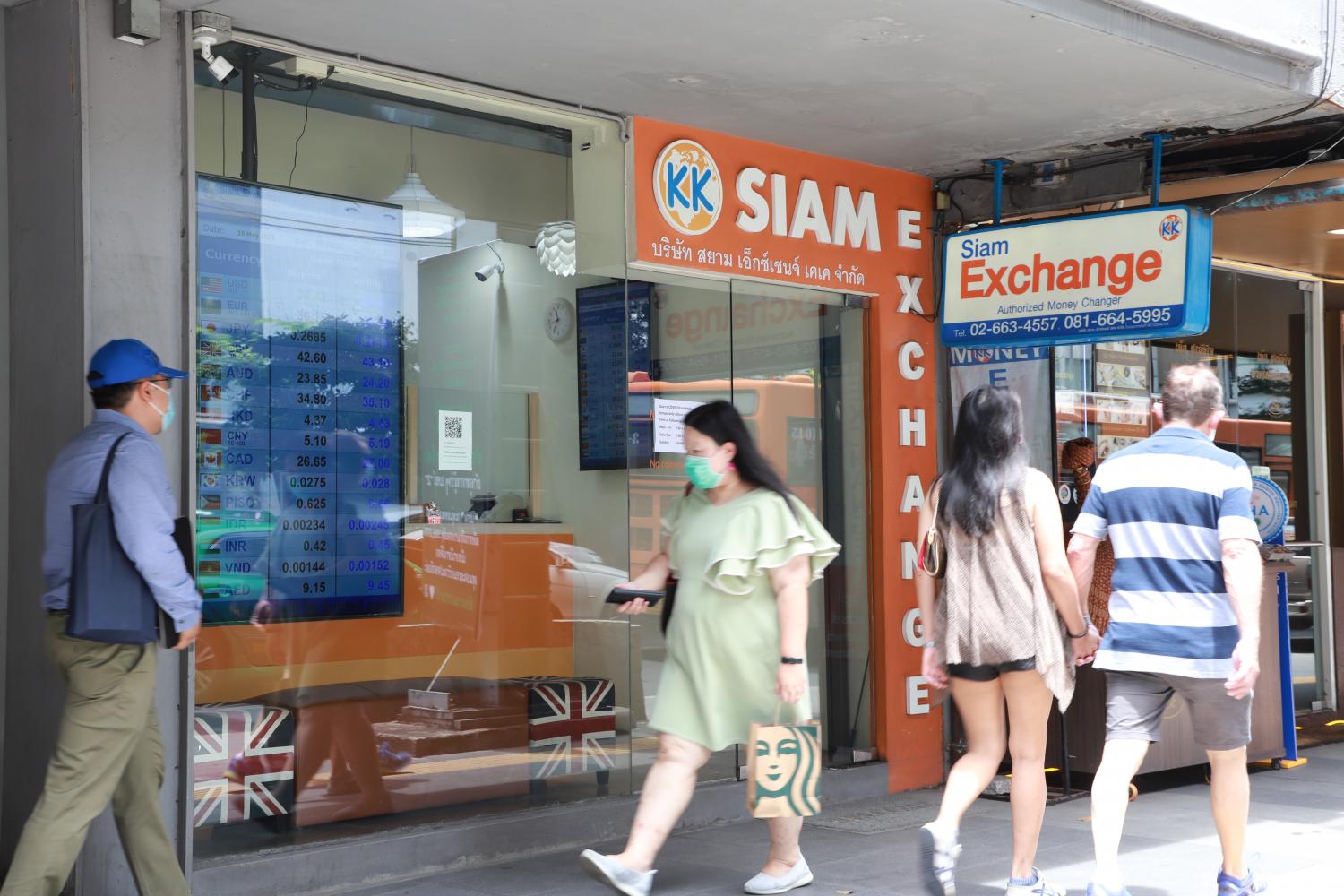
The Finance Ministry expects the baht's value to rebound in the second half this year, in line with the anticipated narrowing of the current account deficit, says a ministry source who requested anonymity.
According to Reuters, Bank of Thailand officials said yesterday the bank will let the baht move in line with market forces, but will manage any excessive volatility of the currency.
The current account deficit is expected to improve in the third and fourth quarters as more foreign tourists return to Thailand, said the ministry source.
Foreign arrivals in the first six months this year tallied 1.98 million. The Tourism and Sports Ministry projects a total for the year of 9 million.
The recovering economy, supported by a sturdy export sector, should also help buttress the baht's value, said the source.
In addition, the Bank of Thailand is likely to raise the policy rate in August, according to several analysts.
All these factors suggest the average baht value throughout the year will not fall significantly, the source said.
Economists expect the central bank's Monetary Policy Committee to raise its key interest rate from a record low of 0.50% at the next meeting in August.
As of May, Thailand had a current account deficit of US$3.71 billion, wider than $3.05 billion in April, as these two months are the period when Thailand-based foreign companies remit profit and dividends back to their countries.
In April the ministry forecast a current account deficit this year of $4.4 billion, compared with $10.6 billion last year.
In 2020 Thailand posted a current account surplus of $21.2 billion.
The baht's value has been pressured by the US Federal Reserve's hawkish benchmark interest rate hike and investors' rush to hold the dollar amid fears of a global recession.
In April, the Fiscal Policy Office downgraded its forecast for economic growth this year to an average of 3.5% from 4% in January.
The office gauged the average baht value this year at 33.1 baht per dollar, in a range of 32.1-34.1 baht.
On Thursday the baht dipped to 36.35 against the dollar, its weakest level in almost seven years.
The baht's weakness has been moderate compared with regional currencies and is mainly driven by a strong dollar, Daranee Saeju, senior director of the Bank of Thailand, told a media briefing yesterday.
The central bank has no suggested range for the baht value, she said.
The Bank of Thailand's policy interest rate will have to be raised gradually, but the timing needs to be weighed, director Nasha Ananchotikul told the briefing.
While rate hikes would not reduce inflation within 1-2 months, they would help keep medium-term inflation expectations anchored, she said.







